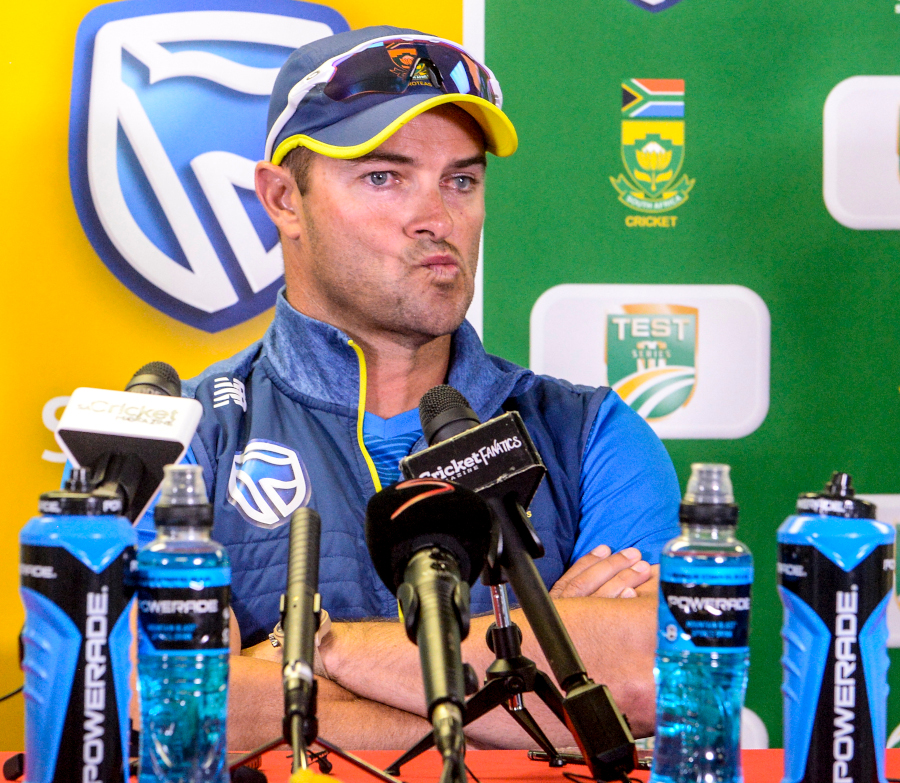Mark Boucher being prepared to litigate the accusation of him being part of singing a racist song about Paul Adams is emotionally immature and sets a precedent which significantly undermines any steps towards racial reconciliation in South African cricket, writes RYAN VREDE.
Speaking at Cricket South Africa’s (CSA) Social Justice and Nation Building (SJN) hearings last month, Adams described several instances of racial discrimination, including being nicknamed “brown sh**” by his teammates, across his playing career. He named Boucher as one of those who used the slur.
“I was called brown sh** when I was playing. It often used to be a song when we won a game and we were in fines’ meetings. They would sing, ‘Brown sh** in the ring, tra la la la laa’,” Adams testified.
Adams said he didn’t experience it as racism at the time. “When you are playing for your country, when you have had that victory, you don’t make sense of it, you brush it off,” he explained.
Rapport reported this past Sunday that Boucher’s lawyers handed in two sworn affidavits to the transformation ombudsman of SJN, Dumisa Ntsebeza, a fortnight ago, in reaction to allegations that he was one of the people who racially discriminated against Adams.
In one affidavit, he reportedly apologises unreservedly for any offence and hurt he might have caused during his playing days, while in the other, he vehemently rejects the allegations Adams levelled against him.
Simply put, Boucher is saying: “I’m sorry if I offended or hurt any black players or coaches inadvertently or unconsciously. But that black guy is lying about his experience. I’m prepared to litigate this if needed.”
I wrote last month that Adams’ testimony had forced Boucher and other accused of racism or racial prejudice into moments of reckoning.
I argued that Boucher had three options in response to Adams’ testimony. He could ignore the allegations, which seemed unconscionable for the national team coach who has to work with black players. He could concede that he played a role in the racist treatment of a teammate, explain why he did so and present a case as to why he isn’t that person any longer. Or he could deny the allegations, which would spark a separate inquest because someone is telling a deeply defamatory lie.
In the end, it was an ugly and deeply unsatisfactory combination of the second and third options. This now leaves the burden of proof on Adams, who surely has to seek out witnesses to support what he alleges.
Setting aside the complexities of doing so, it would be a futile exercise. This situation has already reached the point where nothing good can come from this. And if the outcome wasn’t geared towards finding some salvageable gold in the rubble of a racist past.
I understand why someone in Boucher’s position would be moved to try to legally protect themselves from being linked to such behaviour. But Adams’ allegation is extremely specific. There have been those who’ve testified broadly about their experience. Not so the former Proteas spinner, who told a story of a specific pain point, one that he had to endure repeatedly.
It would be shameful if Adams has fabricated this story. He would deserve the strongest possible rebuke if it was found that he imagined this scenario to paint his white teammates as racist, or racially insensitive at best. I don’t believe he has.
I suspect Boucher’s defence will be replicated by most of those implicated in testimony, including his boss and close friend Graeme Smith. This is sad because the hearings had the potential to be a defining and healing moment in South African cricket’s history. Instead, it will only serve to deepen the racial divide.
To be clear, this is what motivated Adams to testify. “I’m just highlighting that it should never happen and if we take this forward in the right way, we will have a lot more respect for each other,” he explained. “Maybe he [Boucher] should come and say sorry. Maybe that is all that needs to happen. It is something that should not be brushed under the carpet. We should air it, if we want our teams within Cricket SA to have the right ethics, the right mentality, the right respect for one another, we should air these things.”
It didn’t feel like a witch-hunt against Boucher and co. Adams, as well as Ashwell Prince and a clutch of others, were asking for deep introspection from those implicated, in the interest of the game at large.
Such introspection can only be extracted from personalities capable of self-improvement, and those who understand that acknowledging bias, whether unconscious or conscious, and committing to ridding themselves thereof through education, is a show of strength, not one of weakness.







